Coverage of the UN High-Level Event on Financing for Development in the Era of COVID-19 and Beyond; post-event press conference
28 May 2020
- Wall-to-wall coverage of the High-Level event, including the Secretary-General's opening remarks, messages from Justin Trudeau, Prime Minister of Canada and co-organizer of the High-Level Event, and Heads of State, among others, and closing remarks from the Secretary-General; transcript of the post-event press conference
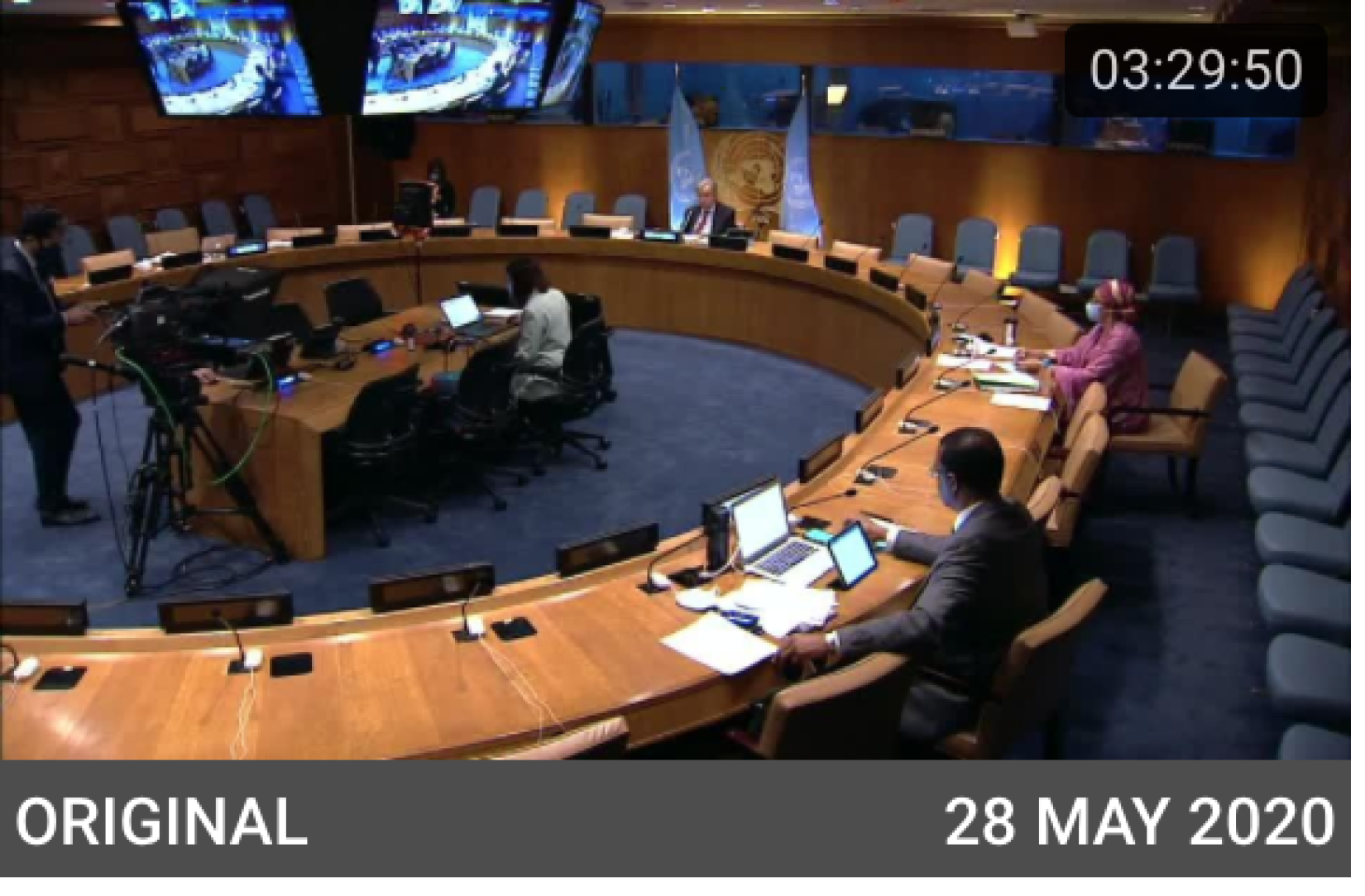
High-Level Event on Financing for Development in the Era of COVID-19 and Beyond
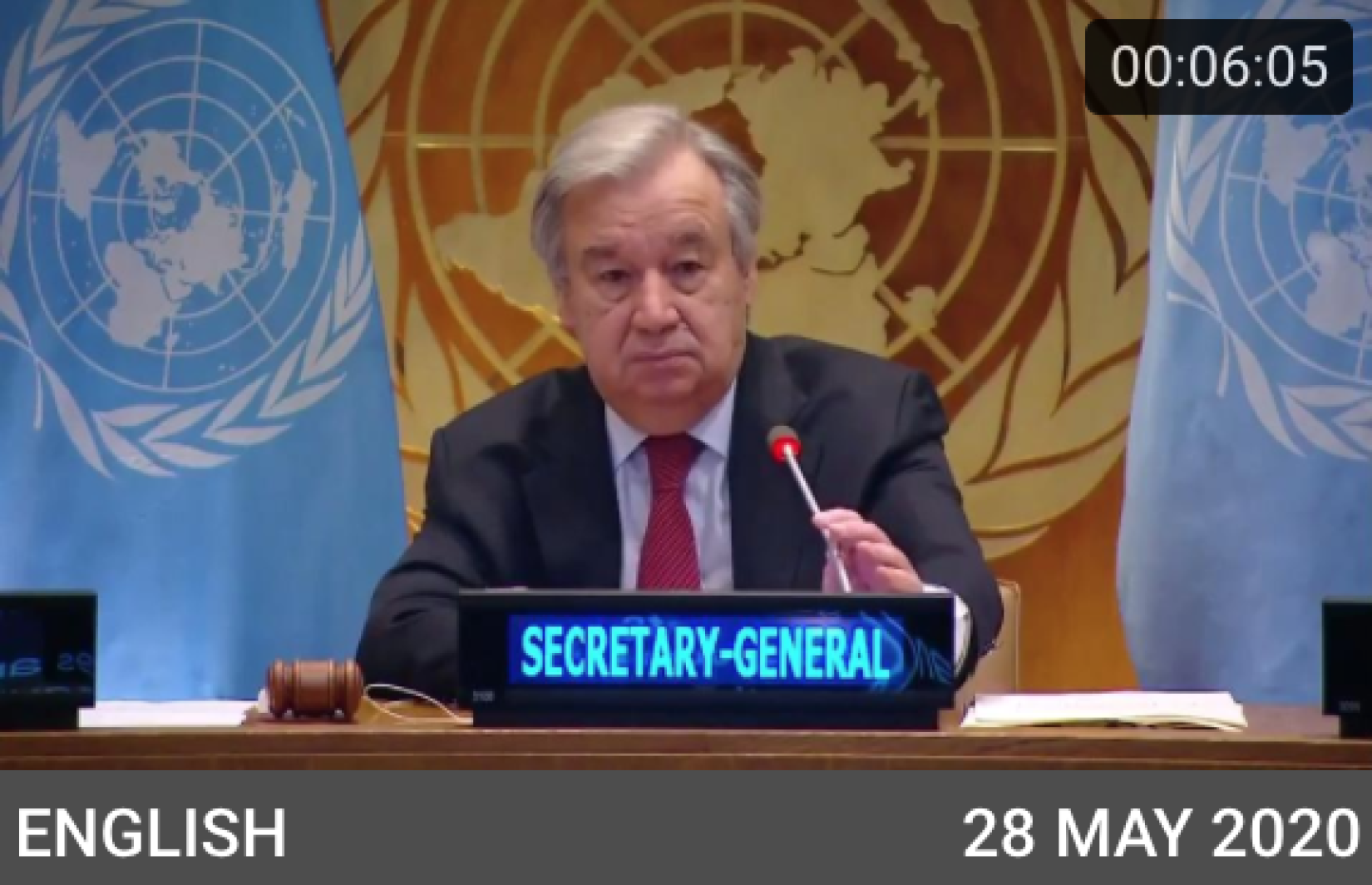
Opening remarks by António Guterres, Secretary-General of the United Nations on the High-Level Event on Financing for Development in the Era of COVID-19 and Beyond
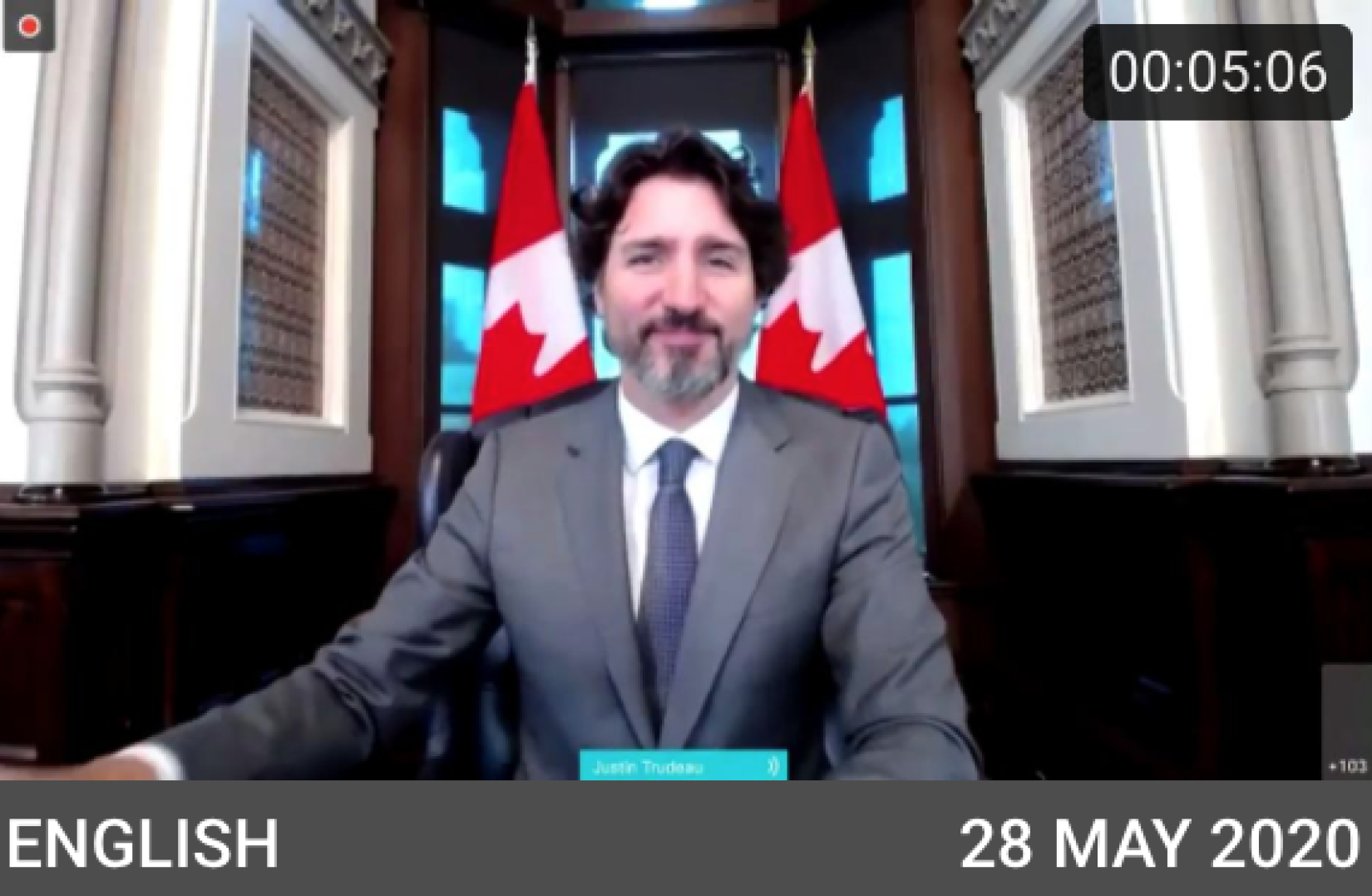
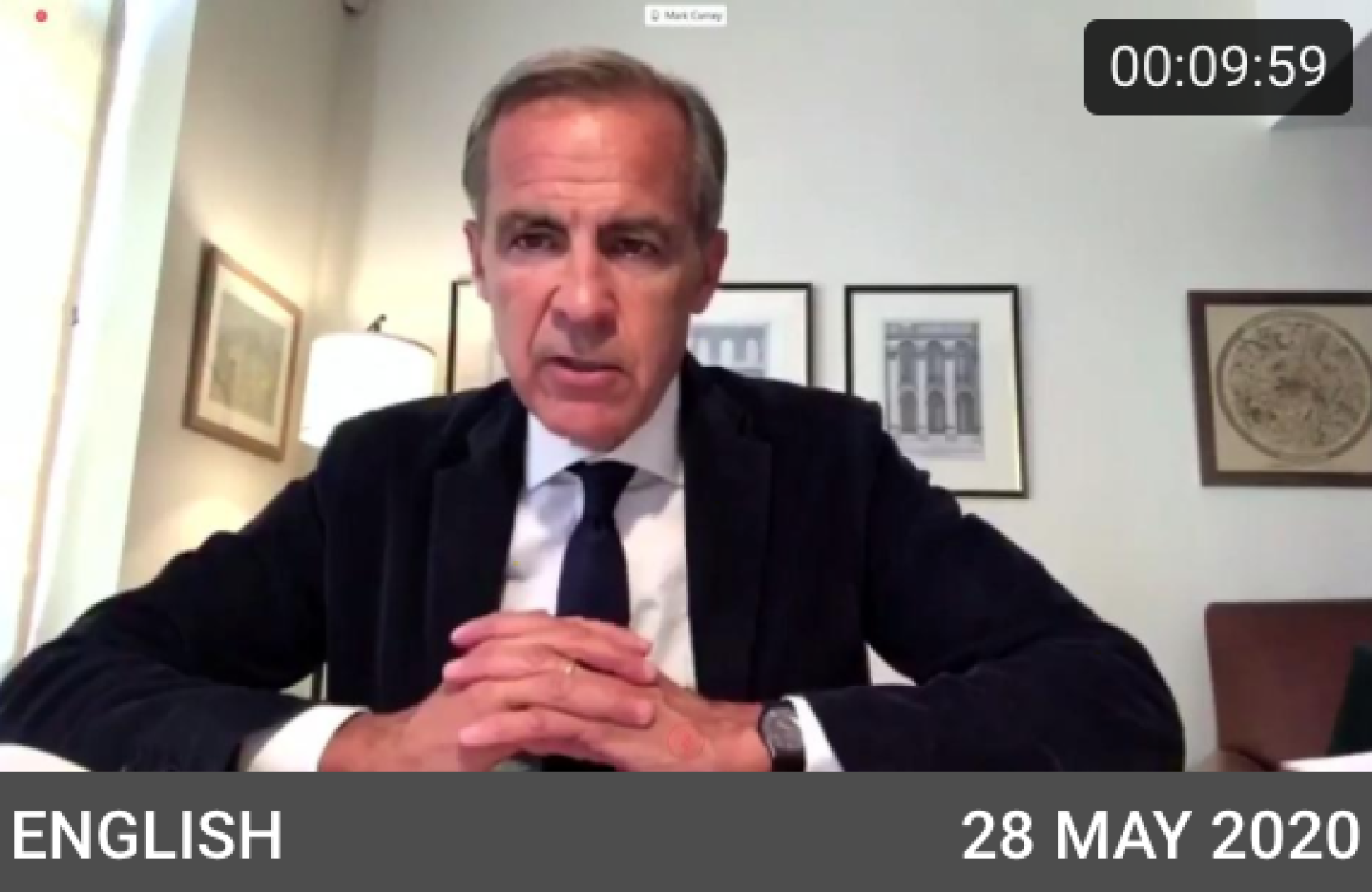
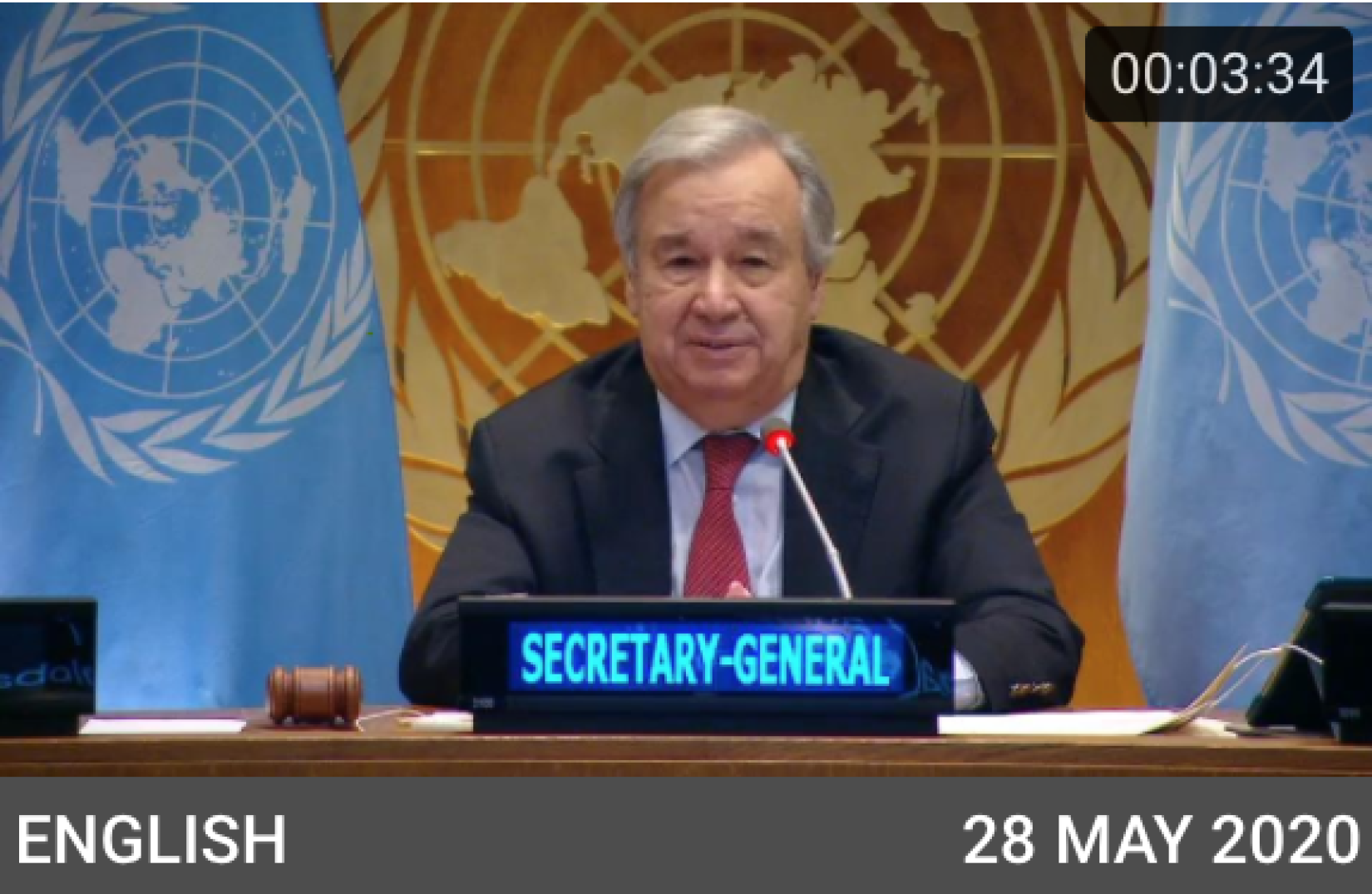
Other messages delivered at the High-Level Event
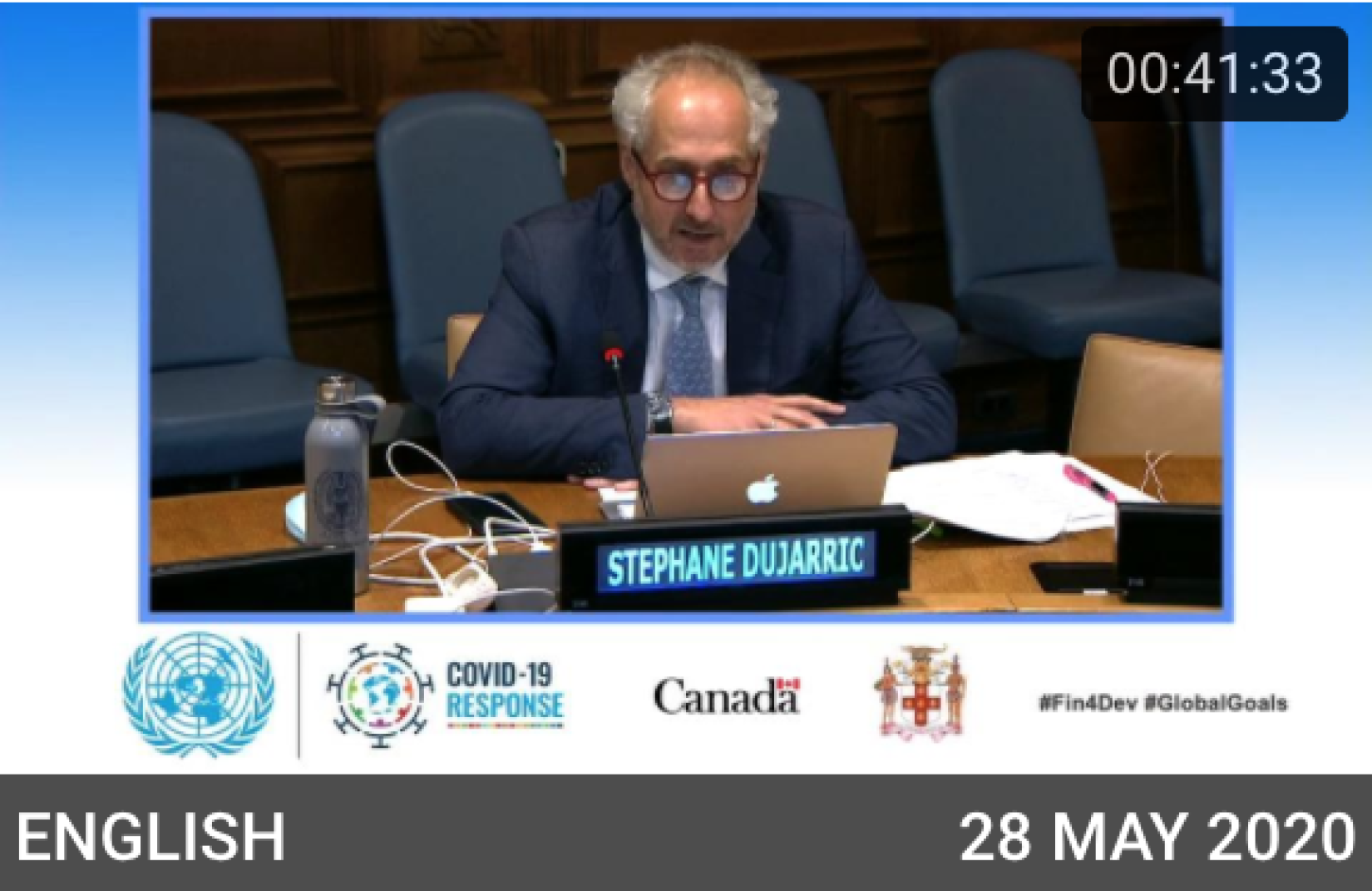
FULL TRANSCRIPT OF THE SECRETARY-GENERAL'S PRESS CONFERENCE WITH THE PRIME MINISTERS OF CANADA AND JAMAICA ON THE HIGH-LEVEL EVENT ON FINANCING FOR DEVELOPMENT IN THE ERA OF COVID-19 AND BEYOND
New York, 28 May 2020
Spokesman: I'm delighted to be joined by the Secretary-General of the United Nations, António Guterres, as well as His Excellency, the Prime Minister of Jamaica, Andrew Holness, and His Excellency, the Prime Minister of Canada, Justin Trudeau.
Just before we start, a reminder to all the journalists, please mute your microphones, and we will start with some opening remarks, and then we will take a number of questions.
So, Secretary-General, sir, you have the floor.
Secretary-General: Hello, everyone. Good afternoon, good evening, or goodnight.
Today’s High-Level Event was a meeting of solidarity with the many developing countries that face catastrophic consequences from COVID-19.
The pandemic continues to cause deep suffering. More than 350,000 people have died; there are 5.5 million cases around the world. Behind these figures there is an unprecedented human tragedy.
The crisis is taking a devastating toll on economies. It is having a particularly dramatic impact on families and communities in developing countries that have fewer resources and weaker social safety nets.
Since the pandemic began, I have pushed for a relief package amounting to a double-digit percentage – more than ten per cent – of the global economy.
Developed countries have announced their own relief packages, because they can. But we have not yet seen enough solidarity with developing countries to provide them with the massive and urgent support they need.
Today, I am encouraged to see 50 Heads of State and Government, the leaders of the International Monetary Fund, the World Bank, the Institute for International Finance, the OECD, the special envoys of the United Nations and the African Union and others – the largest gathering of leaders since the pandemic began – coming together around joint solutions to the crisis.
Working groups will now consider six areas for urgent action with the first reporting to a ministerial meeting at the end of July:
First, finding ways to enhance global liquidity so that developing countries have the resources they need to fight the pandemic.
Second, preventing debt crises in all countries at risk, including middle income countries. Such crises risk undermining both the COVID-19 response and sustainable development for years to come.
Third, engaging with private creditors on joint debt relief efforts.
Fourth, aligning global financial systems with the Sustainable Development Goals.
Fifth, ending illicit financial flows, and
Sixth, rebuilding differently, and better.
Everything we do must be aimed at enabling developing countries to fight the pandemic, while keeping their communities, businesses and economies afloat.
Dear friends,
Our world is afflicted by enormous fragilities: weak health systems; runaway climate change; unsustainable levels of inequality.
We see other signs of this fragility everywhere, from the increasing risk of nuclear proliferation to the lawlessness of cyberspace.
Ignoring these warning signs is senseless arrogance. Existential threats demand humility, unity and solidarity.
We cannot contemplate a return to the same failed priorities and systems. We must invest in a sustainable and inclusive recovery.
Too often, speed and greed have triumphed over compassion, solidarity and humanity.
This pandemic is reminding us that the important things in life require investment – in people; in physical and mental wellbeing; in protecting our environment and in combating inequalities, including gender inequality.
The 2030 Agenda for Sustainable Development and the Paris Agreement on climate change address precisely the failures that are being exposed and exploited by COVID-19.
I want to thank my co-hosts, Prime Ministers Justin Trudeau and Andrew Holness, whose countries co-chair the Group of Friends of Sustainable Development.
And I thank all those who have come together in solidarity today to work together on a different and better world for our children and generations to come.
Thank you.
Spokesman: Thank you very much, Secretary-General. It is now my great pleasure to give the floor to the Prime Minister of Jamaica, Andrew Holness. Sir, you have the floor.
Prime Minister Holness: Thank you. As you have seen from the widespread participation at today’s meeting, the international community is united and committed to taking the action required to mount a robust and coordinated response to the devastating economic and human impacts of COVID-19.
Over 50 Heads of State and Government responded to our invitation to participate at this High-Level Event.
It is fitting that the UN has taken the initiative as our co-convenor in this regard, as it comprises the broadest and most inclusive range of countries of any international organization.
By leveraging its convening power, the UN and its Member States have today launched a partnership with key stakeholders, including the private sector and civil society.
Our aim is to facilitate a process to devise concrete solutions to the development emergency that stems from the COVID-19 pandemic.
As we heard today, there is general agreement that our response to this pandemic will require a large-scale, comprehensive multilateral effort. We are determined to support countries, particularly those most in need. Our goal is to not only relieve the hardship they are currently experiencing, but to enable them to recover better.
By recovering better, we mean that countries vulnerable to systemic shock must be made more resilient, from an economic, social and environmental standpoint. Our overarching objective is to create the conditions for sustainable, just, inclusive economies and societies.
After all, this is the collective endeavour to which we all committed in 2015. We remain focused on achieving the SDGs and in implementing the NDCs (Nationally Determined Contributions) we agreed to under the Paris Climate Accord.
The next stage in this process involves the work that will be undertaken by the six thematic working groups that has been established.
These groups will comprise representatives of government, international financial institutions and other key actors.
Their mandate will be to build on the ideas that emerged from today’s discussions, with a view to developing concrete solutions to address the crisis. They will report to us, the three co-convenors, on three occasions throughout the rest of this year: in July during the High-Level Political Forum (HLPF), in mid-September at the opening of the 75th session of the General Assembly, and in mid-December.
With that said, I look forward to your questions.
Spokesman: Thank you very much, Prime Minister. I now give the floor to the Prime Minister of Canada, Justin Trudeau.
Prime Minister Trudeau: Thank you. First, I want to thank my co-hosts, Secretary-General Guterres and Prime Minister Holness of Jamaica.
I also want to thank everyone who joined us today for this important discussion.
We brought together not just over 50 world leaders, but private sector actors and representatives from bodies such as the IMF and the World Bank because every single one of us will have a key role to play on the road to global recovery.
Pour assurer la sécurité des Canadiens et vaincre la COVID-19 pour de bon, on doit regarder au-delà de nos frontières.
On doit se rappeler que la COVID-19 n’est pas seulement une crise sanitaire, mais une crise économique d’envergure mondiale.
Le Canada est un pays commerçant avec des liens familiaux partout dans le monde.
On comprend que nos emplois, nos entreprises, nos travailleurs, notre économie dépendent en partie d’une économie mondiale en bonne santé.
Et en pleine pandémie, on ne peut pas fermer les yeux sur le monde dans lequel on vit.
We can’t forget about the most vulnerable, whether that’s people far away who are struggling, or people in the Caribbean who have been among the hardest hit.
The global pandemic is an unprecedented challenge for our modern world, but it’s also a unique opportunity to adjust our international institutions, so that they are more fit for purpose.
Today, we began a conversation on how we can emerge from this global crisis as a stronger and more cohesive world.
We are forming six discussion groups to submit concrete proposals by mid-July on the path forward.
Groups will strive to:
Protect the progress we’ve made in international development by expanding liquidity and maintaining financial stability in the global economy.
Save lives and livelihoods for billions around the world by helping developing countries deal with debt vulnerabilities.
Encourage private sector creditors to be part of the solution
Enhance external finance and remittances to create growth and jobs.
Prevent illicit financial flows to expand fiscal space and encourage domestic resource mobilization.
Ensure a sustainable and inclusive recovery by aligning policies with the Sustainable Development Goals. [Ends]







